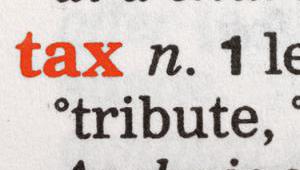On March 19, I was one of a delegation from the all-party parliamentary betting and gaming group seeing Treasury minister John Healey about the taxation of online gambling.
On March 21, Gordon Brown unveiled his last Budget.
To those who have grown up under Labour, that might seem a pretty unremarkable coincidence of events. Who wouldn’t be lobbying about tax in the run-up to a Budget that fixes the rates?
In fact, that it seems unremarkable is one of the remarkable facts about it. For, until a decade ago, such a meeting so close to a Budget would have been seen as utterly inconceivable — less likely, say, than pigs flying or aliens invading the Earth. For Budget secrecy had a sanctity that made it virtually a feature of the constitution.
It is barely 60 years since poor Hugh Dalton, a Labour chancellor in the Attlee government, was forced to resign for failing to abide by this unwritten rule.
Dalton, a man given to booming indiscretion, made the error of telling an Evening Star lobby correspondent part of the contents of his Budget on his way in to deliver it to the Commons. With commendable speed, the story appeared before Dalton had shared it with MPs. He immediately offered his resignation, which Attlee accepted.
It is possible that, had Dalton been a more popular figure, he might have survived. But that his offence was heinous was not doubted — worse by far than sleeping with your diary secretary, and as bad as misleading Parliament.
It would be untrue to say the tradition of secrecy survived intact from then to Brown. At one point, as economics editor of the Sunday Times, it was my job each year to write, with the political editor, an ‘expected to’ story, which predicted, preferably accurately, what the chancellor would announce without leaving too much egg on our faces if he in fact announced something quite else.
It was an unenviable task, involving a mixture of hard graft through brokers’ forecasts and
think-tank assessments, conversations with lots of MPs and officials who might or might not have talked to the chancellor (and mostly would not tell you what he said if they had), and a good deal of guesswork.
It culminated in an embarrassing (for both parties) call or two to his press secretary. That soul might or might not be empowered to give a general steer: ‘budget for jobs’, ‘budget for stability’, ‘budget for growth’ — anything that might satisfy the headline writer.
On Budget day itself, I and my economic colleagues were literally locked in a room in the Treasury. We were given the documents and a senior official to brief us, but we were allowed out only once the chancellor was safely down.
On occasion, better journalists than I did better than that. Peter (now Sir Peter) Stothard, subsequently a fine editor of The Times, made his reputation on the basis of an accurate account of an early Budget from Geoffrey Howe. However, the uproar that followed had to be heard to be believed. So did those that followed the initiative of some popular papers which, for later Budgets, apparently found ways of cracking the confidentiality of some government printers.
What was never questioned was that secrecy. Even as we were trying to break it, we generally understood that it was justified. It was important, so we were told, to protect the Revenue: if people knew cigarette prices were going up, they would be queuing outside every tobacconist to stock up.
More important, there was a mystical thing called market confidence. If the Budget was known, and if financial markets interpreted it adversely, trouble was inevitable.
Gordon Brown, with great imagination, has turned all that on its head. Rather than taking advantage of secrecy, Brown has decided that the more that is open, the less anyone will bother to take advantage of it for personal gain and the less jittery financial markets will be.
So the Pre-Budget Report sets out much of the background. The Finance Bill, incorporating the Budget, is put out in draft. More and more things are subject to long-term plans — public expenditure, for example, to successive Fundamental Expenditure Reviews — so there is less and less room for surprise.
Of course, Brown keeps a few unrevealed lollipops up his sleeve for the big day — after all, he is a practising politician. This year, the 2p cut in the basic tax rate was a case in point.
But the Budget is no longer the news event it was. Getting (or guessing) its content is no longer every journalist’s dream. Markets and consumers sail serenely on, before, during and after it.
It is hard to imagine a future chancellor seeking to reverse the policy, and harder still to imagine that, if they did, they would succeed in keeping the secrets in which their predecessors revelled.











